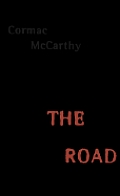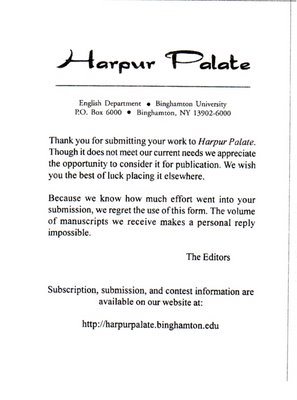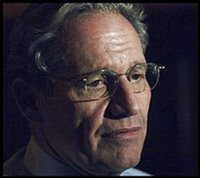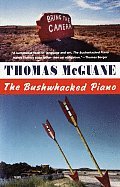Every week, the New Yorker publishes a high-profile piece of short fiction, and I would like to say I read them all. I don’t. Not yet. But I am always curious about the stories that get published. So what follows here is my first attempt to look critically at one of the stories published in the last few weeks.
New Yorker fiction: Joyce Carol Oates’s
“Landfill”I could put aside the ripped-from-the-headlines aspect of this story except that it is told (at least the first half or so) in a reportage style. We have facts, laid upon fact, laid upon speculation. We are given no scenes and no real dialogue until late in the story. At the halfway point I was still waiting for the story to start.
Oates is a very talented writer and I have no reason to think that she slapped this one together and the
New Yorker printed it on her name alone (although we could spend much more time on how the
New Yorker does choose its stories). We get some impressions from the dead son, more memorable ones from his college roommates, but the story really belongs to his mother, Mrs. Campos. During the three weeks before they find her son’s body, she is doing her best to hold onto hope, despite the look on her husband’s face and despite the fact that she knows better. The story begins to move here and we understand her struggle, though Oates dues burden the reader with the all the hopes and fears she had for her son.
What makes the story work, really click, and sustain in memory is the image, the desire and hope in the last paragraph:
Unconsciously caressing her left breast, holding her left breast in her right hand—how like a sac of warm water it is, or warm milk—and, on the brink of a dream of surpassing beauty and tenderness, Mrs. Campos shuts her eyes. Why does Mr. Campos never caress her breasts anymore? Why does Mr. Campos never suck her nipples anymore? Mrs. Campos runs her thumb over the large soft nipple, stirring it to hardness, like a little berry. She is driving back from the city, driving back from ugly Detroit to Whispering Woods Estates, such joy, such pride, turning into the brick-gated subdivision off Southfield Road, making her way floating along Pheasant Pass, Larkspur Drive, Bluebell Lane, and, at last, to Quail Circle, where, in the gleaming-white Colonial at No. 23, the Campos family lives.Her loss makes her aware of her own desire, her need for love. Then Oates follows up, with contrast, by “floating” back into the fact-laden reporting.
I have much too much respect for Oates to be let down by a story, to say that it’s not a very good story, but I didn’t really appreciate it as much as I would have liked. Leave it to that ending though to explain why I am still thinking about it.
 Everyman by Philip Roth
Everyman by Philip Roth




 A Farewell to Arms
A Farewell to Arms



